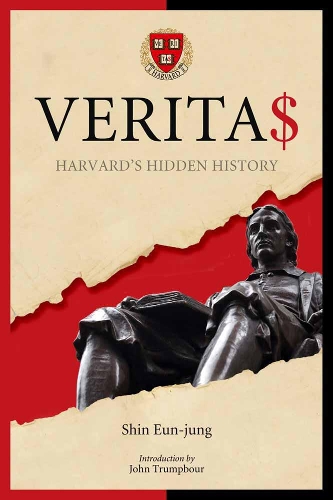
Verita$: Harvard's Hidden History
(Paperback)
Publishing Details
Verita$: Harvard's Hidden History
By (Author) Shin Eun-jung
Introduction by John Trumpbour
PM Press
PM Press
8th December 2015
United States
Classifications
General
Non Fiction
History of education
378.744
Physical Properties
Paperback
240
Width 152mm, Height 229mm
360g
Description
A critical examination of Harvard's monumental but disconcerting global influence and power, VeritaGBP examines Harvard's hidden history. It begins with analysis of Harvard's involvement in the Salem witch trials. Harvard scientists promoted eugenics in the early 20th century, impacting Nazi race theories. Harvard's management of Russian economic reform led the US government to sue them for GBP26 million. Harvard's motto is Veritas,' which means 'truth'. As the author reviews Harvard's history, she emphasises the ways that Harvard has pursued money and power above its quest for truth.'
Reviews
"Verita$ provides a well informed and historically-based description of America's premier educational institution. The book demonstrates how Harvard has impacted the world through research, education, and policymaking." --Harry Targ, Socialism and Democracy
"Verita$ recites a litany of bad acts: the Salem witch trials, eugenics, a so-called 'collaboration' with Joseph Goebbels and Heinrich Himmler, architects of financial collapse such as Robert Rubin and Larry Summers, McCarthyism, racism, sexism, tyrannical labor practices and "a poison called elitism." --Sarah Rose, New York Post
"This book's thesis is that Harvard University serves the interests of wealth and power and reproduces social inequality by empowering elites. The author asks why shouldn't 'the ultimate goal of higher education be creating a civil society in which more people live equally and happily' Recommended." --W.S. Simmons, CHOICE
Author Bio
Shin Eun-jung is a former television news writer. From 2000 to 2004 she directed the Gwangju Human Rights Film Festival, which screened documentaries from around the world, and she directed the award-winning film of the same title. John Trumpbour is the research director for the Labor and Worklife Program at Harvard Law School. He is the author of How Harvard Rules: Reason in the Service of Empire and Selling Hollywood to the World: U.S. and European Struggles for Mastery of the Global Film Industry, 1920-1950, which won the Allan Nevins Prize from the Society of American Historians. He lives in Cambridge, Massachusetts.
